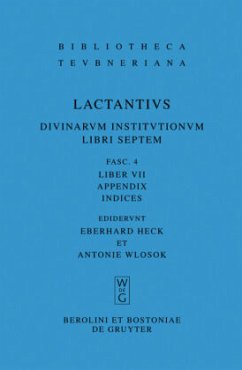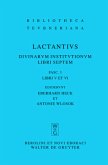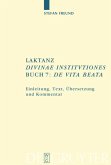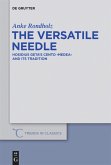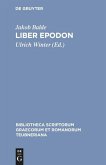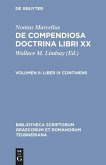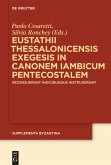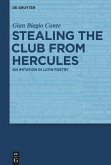Theseven books of the Diuinae institutiones , the most important work by Lactantius, the Christian author and contemporary of Constantine the Great, are an apologetic treatise that includes a defense of Christianity and a criticism of pagan religion, philosophy and morals. The fourth fascicle, consisting of book VII (Christian eschatology), an appendix (Latin translations of Greek quotations) and indexes,continues the critical edition of this work, of whichfascicle 1, containing books I and II as well as a praefatio, was published in 2005,fascicle 2 with books III and IV in 2007 and fascicle 3 with books V and VI in 2009.
Die sieben Bücher Diuinae institutiones sind das Hauptwerk des Lactantius, des letzten der sechs christlichen Apologeten lateinischer Sprache bis zu Constantins Zeit. Sie verbinden Verteidigung des Christentums und Kritik griechisch-römischer Religion, Philosophie und politischer Moral mit werbender Unterweisung in christlicher Lehre und sind ein wesentlicher Beitrag zur Übernahme griechisch-römischer Bildungstradition ins Christentum. Die Neuedition dieses Werkes, die Samuel Brandts (1890) bisher maßgebende Edition ablösen soll und deren erster Faszikel mit den Büchern I (De falsa religione) und II (De origine erroris) und der Praefatio 2005 erschien, dem 2007 der zweite mit den Büchern III De falsa sapientia und IV De uera sapientia et religione und 2009 der dritte mit den Büchern V De iustitia und VI De uero cultu folgte, wird mit dem vierten Faszikel abgeschlossen. Er enthält Buch VII De uita beata (Unsterblichkeit als Ziel des Menschen; Endzeitschilderung). Hierfür wurden die Handschriften neu kollationiert, die Textkonstitution aufgrund neuer Recensio (bes. zu den zwei Autorfassungen) und weiterer Kriterien (spätantike Latinität, Prosarhythmus) überprüft und der Nachweis von Quellen und Nebenüberlieferung aktualisiert. Dazu kommen eine Appendix (Interpretamenta Graecorum Diuinis institutionibus insertorum) und drei Indices (Index locorum, Index nominum, Index formarum et scripturarum). Die Edition wird mit dem Tübinger System von Textverarbeitungsprogrammen TUSTEP erstellt und zum Satz aufbereitet.
Die sieben Bücher Diuinae institutiones sind das Hauptwerk des Lactantius, des letzten der sechs christlichen Apologeten lateinischer Sprache bis zu Constantins Zeit. Sie verbinden Verteidigung des Christentums und Kritik griechisch-römischer Religion, Philosophie und politischer Moral mit werbender Unterweisung in christlicher Lehre und sind ein wesentlicher Beitrag zur Übernahme griechisch-römischer Bildungstradition ins Christentum. Die Neuedition dieses Werkes, die Samuel Brandts (1890) bisher maßgebende Edition ablösen soll und deren erster Faszikel mit den Büchern I (De falsa religione) und II (De origine erroris) und der Praefatio 2005 erschien, dem 2007 der zweite mit den Büchern III De falsa sapientia und IV De uera sapientia et religione und 2009 der dritte mit den Büchern V De iustitia und VI De uero cultu folgte, wird mit dem vierten Faszikel abgeschlossen. Er enthält Buch VII De uita beata (Unsterblichkeit als Ziel des Menschen; Endzeitschilderung). Hierfür wurden die Handschriften neu kollationiert, die Textkonstitution aufgrund neuer Recensio (bes. zu den zwei Autorfassungen) und weiterer Kriterien (spätantike Latinität, Prosarhythmus) überprüft und der Nachweis von Quellen und Nebenüberlieferung aktualisiert. Dazu kommen eine Appendix (Interpretamenta Graecorum Diuinis institutionibus insertorum) und drei Indices (Index locorum, Index nominum, Index formarum et scripturarum). Die Edition wird mit dem Tübinger System von Textverarbeitungsprogrammen TUSTEP erstellt und zum Satz aufbereitet.

